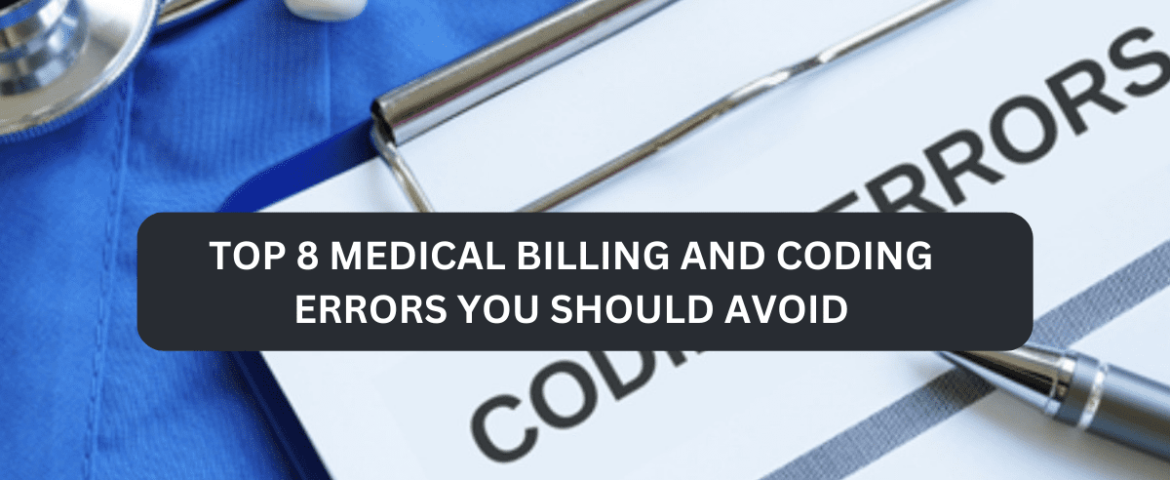- The most frequent reason for medical claims denials is improper medical billing and coding, including ICD and CPT codes that are wrong, invalid, or missing.
- In 2015, the ICD-10 was released, bringing with it 55,000 new medical codes.
- The frequency of medical claim denials skyrocketed, and the complexity of the coding rose significantly.
- Errors are inevitable given the new coding system’s complexity.
- Despite the fact that the average error rate of the coding operations vary from source to source, billing errors are quite expensive for the company.
- Medical coding procedures must be completed with the highest care; otherwise, it may harm your relationships with patients.
8 Top Medical Billing and Coding Errors
- Upcoding Errors
- Upcoding mistakes occur when patients are charged for more involved and expensive procedures than they underwent.
- These mistakes happen when the executive of the billing department makes a mistake when entering the treatment and diagnosis codes.
- Insufficient Data
- When a medical organization makes this mistake, the payers are not given the necessary information to support the claim, which results in the claim being denied.
- These errors may be the result of employee errors. It can also happen when doctors give inaccurate diagnosis information.
- Incorrect Procedural Codes
- A minor error in judgement could result in a serious data entry problem and alter the process codes.
- This issue generally happens when the data from the encounter forms and other supporting documentation is inaccurately reported.
- Unbundling Errors
- This entails breaking the procedure up into multiple smaller ones. When a comprehensive code for the entire procedure exists, each of them is paid and coded separately.
- This method of billing a patient is unethical and may result in an audit. Your medical coders must be aware of this inaccuracy as a result.
- Code Not Specific
- For some ICD-9 codes to provide the best specificity, a fourth or fifth code is required. The claim will be disregarded if this is left blank.
- It is crucial that the coder double-checks his facts by searching the internet or consulting the codebook if they are uncertain about the maximum level of specificity.
- Misinterpretation of Reports
- Coders typically do not code a medical operation unless the description includes specifics about the operative steps.
- Otherwise, it may result in errors in the medical billing and coding procedure and incorrect interpretation of the operation results.
- Outdated References
- The personnel have to be informed of the most recent modifications to the medical codes. As and when the coding system changes, the references utilized by coders need to be changed as well.
- All obsolete references must be changed right away with the most recent versions to prevent revenue loss.
- Duplicate Billing
- The identical medical procedure gets billed more than once due to a human error. Instead of sending in a follow-up claim, this may lead to submitting a claim.
- Often, these claims are divided into two categories: precise duplicates and questionable duplicates.






